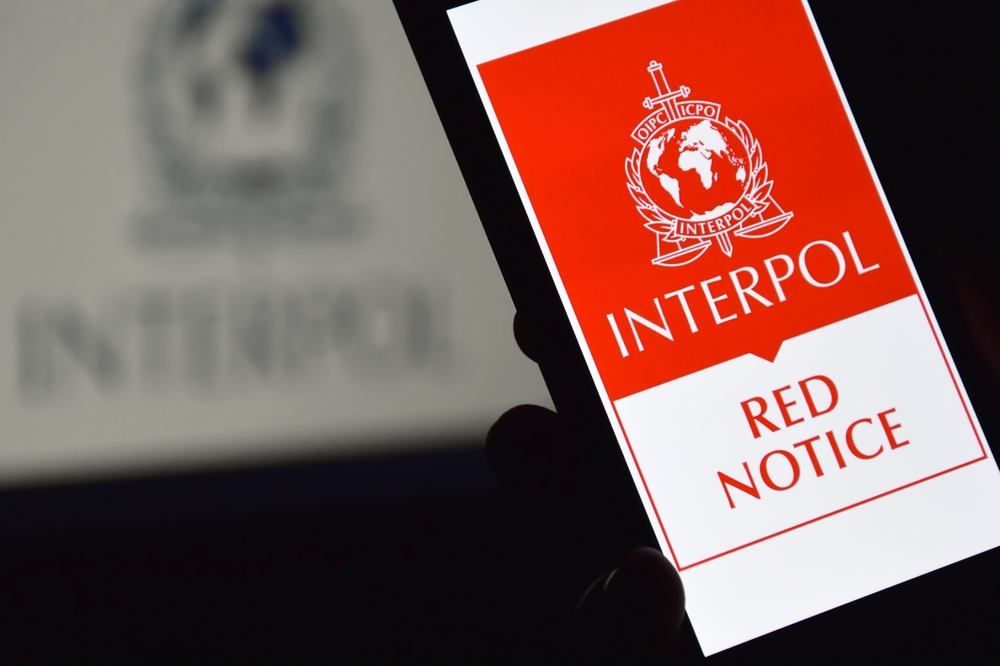El artículo se publicó por primera vez en New Law Journal on 24 October 2025.
—
In Brief:
- Simon Leviev, also known as the Tinder Swindler, was arrested in Georgia on an Interpol red notice, showing that the system can work when nations cooperate and act.
- A red notice is an electronic notification, indicating that one state is seeking the location, arrest and possible extradition of an individual, although jurisdictions respond to them in different ways.
- The system remains vulnerable to manipulation and abuse, with extensive documentation of misuse by authoritarian regimes.
Interpol and red notices returned to international headlines this September following the arrest of Simon Leviev, the notorious ‘Tinder Swindler’, at Batumi International Airport in Georgia. Detained immediately upon arrival on an Interpol red notice, Leviev’s case has reignited attention on international law enforcement mechanisms that can reach across borders, while simultaneously exposing the complexities and vulnerabilities inherent in these systems. The convicted fraudster, whose real name is Shimon Yehuda Hayut, gained international notoriety through the 2022 Netflix documentary The Tinder Swindler, which exposed how he allegedly swindled women across Europe out of an estimated $10m through elaborate romance scams. Georgia’s Interior Ministry confirmed the arrest was executed pursuant to an Interpol red notice, though the specific charges initially remained unclear even to Leviev’s lawyers. His arrest represents a significant development in a case that has frustrated authorities across multiple jurisdictions for years. Despite serving a brief sentence in Israel after being arrested in Greece in 2019, Leviev had been travelling freely across international borders. The problem with red notices is not their existence, but their enforcement. Unless countries act quickly and consistently, individuals can avoid justice almost indefinitely.
Understanding Interpol
Red notices are often misunderstood, partly due to their dramatic portrayal in popular culture. Films and television series often depict Interpol as an international crimebusting squad, with officers patrolling borders and investigating crimes. In reality, Interpol neither conducts investigations nor makes arrests. It functions solely as an information-sharing network connecting police agencies in 196 member states. Formally known as the International Criminal Police Organization, Interpol facilitates cooperation by maintaining databases and distributing notices. When someone like Leviev is said to be ‘arrested by Interpol’, the arrest actually occurs because local authorities discover an active notice during a routine check and detain the individual under domestic law.
…
Response to red notices varies widely. Some jurisdictions treat them as automatic grounds for arrest, especially at border crossings. Others require a judicial warrant before detention. The reaction often depends on bilateral relations, extradition treaties and domestic legal safeguards.
The Tinder Swindler’s eventual arrest in Georgia proves the system can work when nations cooperate and act on legitimate law enforcement requests. Leviev’s case demonstrates that even individuals who have previously evaded consequences can ultimately face accountability through coordinated international action. However, the case also exposes systemic weaknesses. Despite being under investigation in multiple European countries for years, despite a Netflix documentary detailing his alleged crimes to a global audience, and despite ongoing civil litigation from numerous victims, Leviev travelled freely for years following his release from Israeli prison. This highlights the central challenge: inconsistent enforcement across jurisdictions creates gaps that sophisticated individuals can exploit.
Read the full article on the New Law Journal website. The online article sits behind the NLJ paywall, non-subscribers can access it free of charge by entering their name and email address – pulse aquí for a free access link.
—
Image: Unsplash


